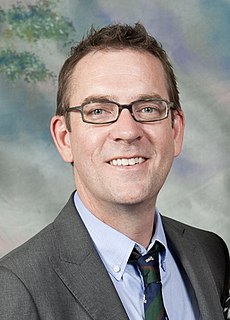A Quote by Ted Allen
No, Queer Eye has a book coming out before mine, in the Spring of 2004, in which each of us has a section and we do a brief overview of our subject area.
Related Quotes
You write differently in each book. It may appear to be similar to readers, but you're a different writer in each book because you haven't approached that subject before. And every subject brings out a different prose strain in you. Fundamentally, yes, you're contained as one writer. But you have various voices. Like a good actor.
Without a doubt, one of the things which keeps us from attaining perfection is our tongue. When one has reached the point of no longer committing faults in speech, he has surely reached perfection, as was said by the Holy Spirit. The worst defect in talking is talking too much. Hence, in speech be brief and virtuous, brief and gentle, brief and simple, brief and charitable, brief and amiable.
Among the older records, we find chapter after chapter of which we can read the characters, and make out their meaning: and as we approach the period of man's creation, our book becomes more clear, and nature seems to speak to us in language so like our own, that we easily comprehend it. But just as we begin to enter on the history of physical changes going on before our eyes, and in which we ourselves bear a part, our chronicle seems to fail us-a leaf has been torn out from nature's record, and the succession of events is almost hidden from our eyes.
In the chequered area of human experience the seasons are all mingled as in the golden age: fruit and blossom hang together; in the same moment the sickle is reaping and the seed is sprinkled; one tends the green cluster and another treads the wine-press. Nay, in each of our lives harvest and spring-time are continually one, until Death himself gathers us and sows us anew in his invisible fields.
If we wish to know about a man, we ask 'what is his story--his real, inmost story?'--for each of us is a biography, a story. Each of us is a singular narrative, which is constructed, continually, unconsciously, by, through, and in us--through our perceptions, our feelings, our thoughts, our actions; and, not least, our discourse, our spoken narrations. Biologically, physiologically, we are not so different from each other; historically, as narratives--we are each of us unique.
It's going to be labor-intensive and time-consuming, but you need to take all the books down and put them on the floor. Take them down and spread them in one area. Physically pick each book up, one by one. If the book inspires you, keep it. If not, it goes out. That's the standard by which you decide.
If you think of even Tolstoy or a book like 'Anna Karenina,' you go from character to character, and each section is from the third person perspective of a different character, so you get to see the whole world a little more kaleidoscopically that way. That's traditional narrative manner, and I haven't done a book like that before, but I enjoyed it.


































